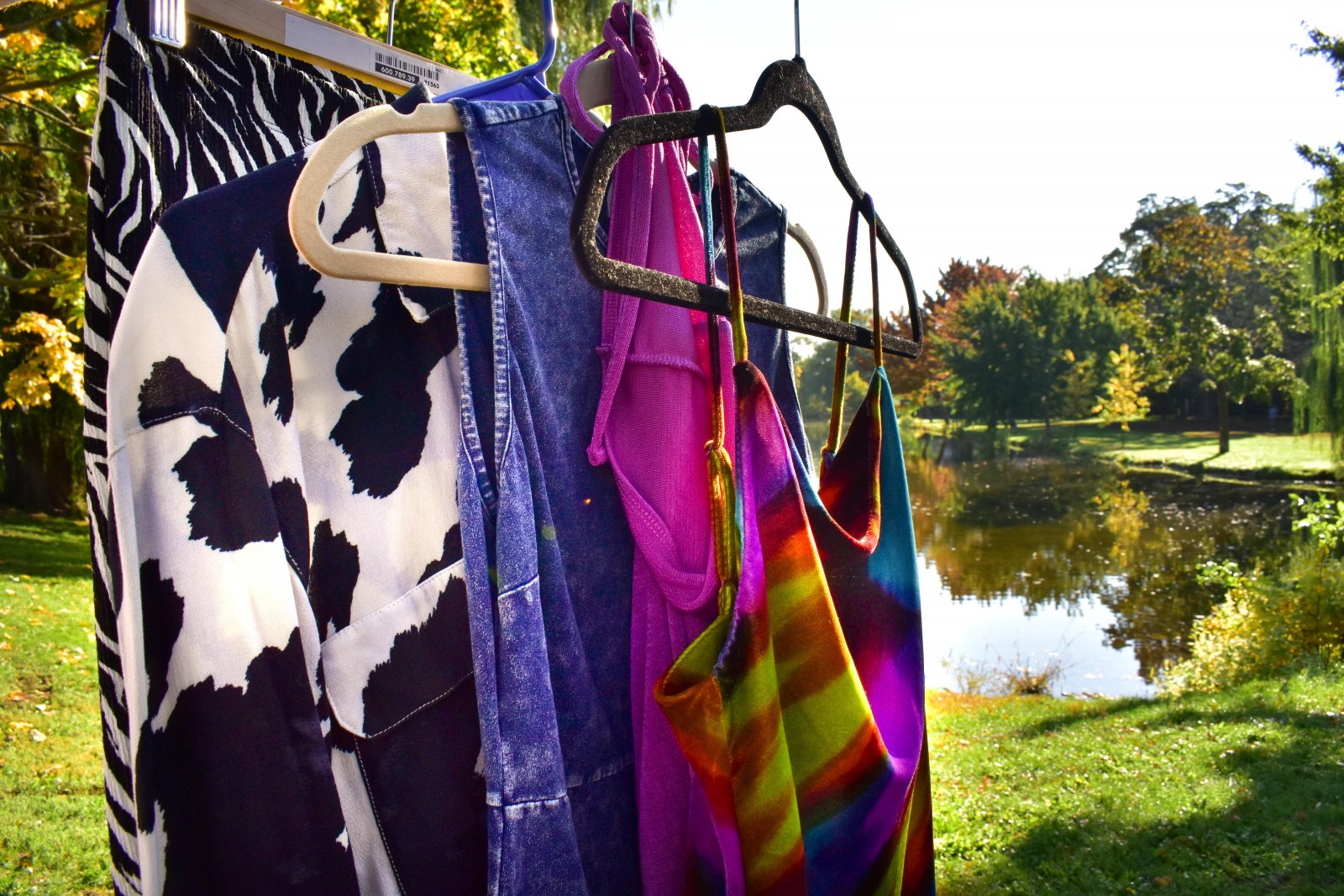11 Dec 2024

Tired Earth
By The Editorial Board

On average, people only wear about 20 per cent of their wardrobe on a regular basis. Photo by Ashley Stefureak
I deleted my TikTok app, or tried to, because of links to too many fashion videos — the kind of videos I dislike mainly because of fast fashion and its haul videos. These trendy, one-minute videos have individuals showing off their large shopping purchases, celebrating the overconsumption of mass quantities of cheaply made clothing from fast-fashion brands.
@trojana1 Ready for summer🌞 #shein #haul #fashion #foryou #fyp ♬ Rihanna Wild Thoughts Ft. Bryson K D Remix - Kevindaveprod
I love fashion, but this overconsumption has to stop for the sake of our planet and for the sake of thousands of species. TikTok and other social media platforms showcase consumerism and a fast-fashion cycle that’s never-ending, and environmental disasters continue to increase alongside hyper-consumption levels.
Fast fashion places importance on mass production, offering consumers cheaply priced “trendy” items. From the manufacturing stage to doorstep delivery, the fashion industry creates more greenhouse gas emissions than international flights and maritime shipping combined, according to the United Nations Economic Commission for Europe. The problem only begins there.
Once the clothes are no longer in style, they get thrown in the garbage. Left to rot in a landfill, they stay whole. Due to the non-biodegradable synthetic polymers in clothes, they further contribute to the mass amounts of waste our planet must harbour.
The textile industry alone creates 35 per cent of the most hazardous forms of microfibres and microplastics found in marine environments, as well as 17 to 20 per cent of the world's wastewater from fabric dyeing and treatment. This creates a range of issues for marine environments because microplastics do not break down at a steady pace, and instead are consumed by fish and other aquatic life.
Despite the ravaging effect the fast-fashion industry has on our environment, haul videos are still shared regularly. My solution to avoiding the constant bombardment was to just delete the TikTok app.
@christinaprothro i’ll post a try on for the clothes😌 #fyp #amazonfinds #amazonfashion #haul ♬ original sound - toohot4scotty
I was fed up with seeing the wrong kind of fashion promoted on such an enormous scale. My solution was short-lived, as the first thing my Instagram explore feed recommended was a TikTok haul video. There were even more recommendations, on Twitter, Facebook, and YouTube.
Marketplace found garments containing elevated levels of toxic chemicals from three fast-fashion retailers: Zaful, AliExpress and Shein.
— CBC News (@CBCNews) October 1, 2021
They've stopped sales of questionable products to Canadians following the investigation. https://t.co/rocXv0drnP
With each of my social media feeds recommending fast-fashion haul videos, one after the other, I began to understand how bad our situation has become.
Opinion: I love fashion, but this overconsumption has to stop for the sake of our planet and for the sake of thousands of species, writes Ashley Stefureak. #FastFashion #Environment
The average consumer purchases 60 per cent more clothing than consumers 15 years ago. In one 60-second video, we can see how consumer habits have changed drastically over the past decade, one cheaply made top after the other. These high levels of consumption have led to trends being shorter. This means that what is trendy now, will be out of style in the next three months when new styles take over the market. Fast-fashion brands are speeding up to meet demand.
People have become so accustomed to purchasing new wardrobes each season, they tend to forget that buying well-made, timeless clothes will not only be better for them financially but help our environment. This is something I regularly have to remind myself, as 92 million tonnes of textile waste is created yearly. This will only continue to increase if we do not change our shopping habits.
Videos on TikTok show new, and arguably, adorable clothing for a very cheap price, but there is much more that goes on beyond the screen. There are many of us, including myself, who can’t afford slow fashion.
This makes fast-fashion brands all the more appealing. Now the problem doesn't lie with those who purchase what is needed when it is needed. The problem lies in the overconsumption and its promotion. Buying an entirely new wardrobe each season is not only excessive but is incredibly wasteful and very harmful.
Thrift shopping is a positive alternative to buying from fast-fashion brands. I sometimes get lost in the sea of fast-fashion websites, scrolling through countless pages of cheap “must-have” items. I have to remind myself of the bigger picture and ask if those jeans are really worth it. Yes, it is all too alluring to wear the hottest trends for what seems like a fraction of the price; but the price isn’t reflected in your bank account, it’s reflected in our environment.
Source : nationalobserver.com
Comment